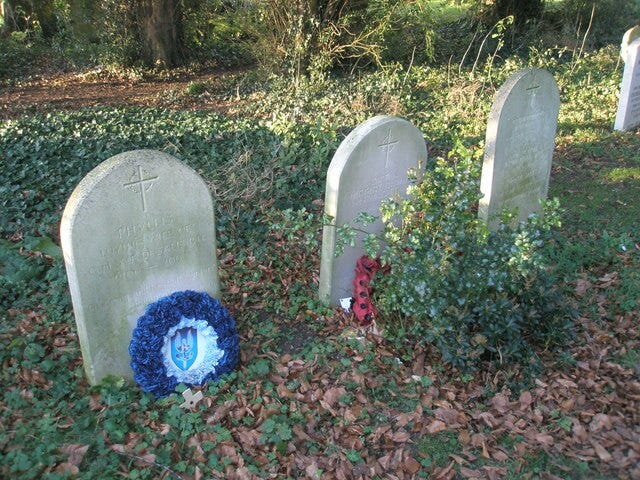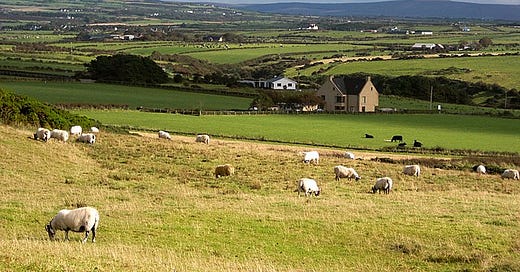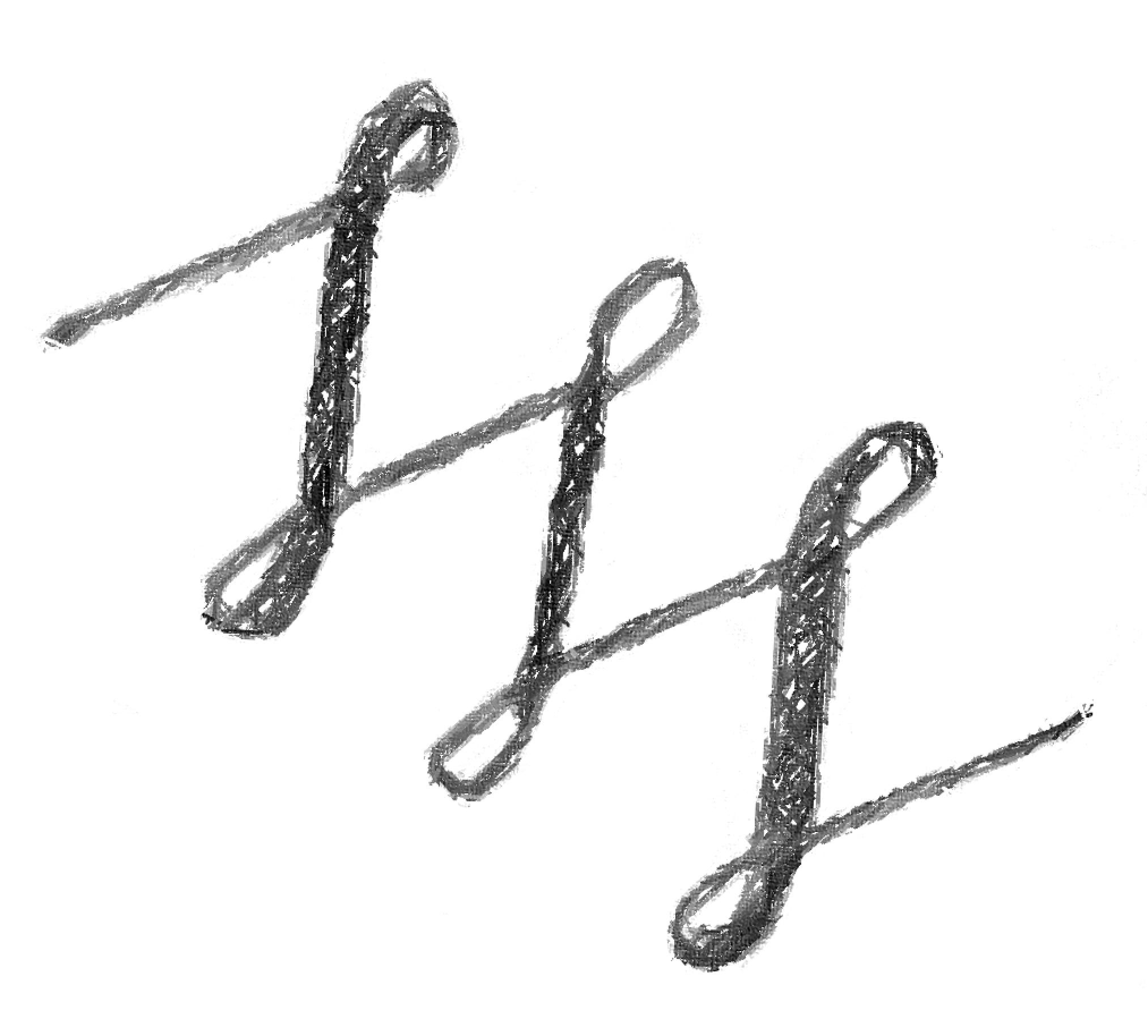Hi all,
Thank you for joining me for today’s song, “There Were Roses”, written and sung by Tommy Sands. If you’d like to hear the song before you read about it, I’ve included a YouTube video below the article.
Below, you’ll find my interpretation of the lyrics which are written in italics. Comments and questions are welcome. For Japanese students, vocabulary words in bold are provided in Japanese below. TOEIC (PBT) 450+, Eiken 2, CEFR B1.
You can listen to each article of “Social Issues in Song” on the Substack App. Download it here:
(931 words)
The singer, Tommy Sands, opens the video by talking about his childhood on a small farm in Northern Ireland. He lived surrounded by neighbors from different religious backgrounds. He remembers lively gatherings at their home, and music played an important role in bringing people together. His earliest memory is of people from many communities coming together, united by the shared rhythm of music. It didn’t matter if they had different ideas about religion or politics. Tommy thinks about the power of music to go beyond divisions and to connect people on a deeper level.
The Troubles
The Troubles in Northern Ireland was a period of conflict that lasted from about 1968 to 1998. The problem was a disagreement about whether Northern Ireland should be part of the United Kingdom or part of the Republic of Ireland. This disagreement was rooted in history and religion.
Many people in Northern Ireland are Protestants, who mostly wanted to stay part of the UK. Others are Catholics, who mostly wanted to be part of the Republic of Ireland. These different beliefs led to disagreements and sometimes violence between the two groups.
During the Troubles, there were many bombings, shootings, and other acts of violence. Secret groups on both sides, called paramilitaries, were responsible for much of the violence.
The British Army was also involved in trying to keep the peace, but sometimes their actions made things worse. There were tragic events like Bloody Sunday, where British soldiers shot and killed unarmed civilians during a protest.
The Song
My song for you this evening is not to make you sad
Nor for adding to the sorrows of this troubled Northern land
But lately, I've been thinking, and it just won’t leave my mind
To tell you of two friends one time who were both good friends of mine
Alan Bell from Banagh, he lived just across the fields
A great man for the music and the dancing and the reels
O'Mally came from South Armagh to court young Alice fair
And we'd often meet on the Ryan Road, and the laughter filled the air
There were roses, roses, there were roses
And the tears of the people ran together
The two friends had different beliefs about religion, but it didn’t matter to them because they were such good friends. Even when they heard the sounds of the conflict, they thought it wouldn’t change the fact that they were friends.
Though Alan he was Protestant, and Sean was Catholic born
It never made much difference, for the friendship it was strong
And sometimes in the evening when we heard the sound of drums
We said it won’t divide us we always will be one
Their families knew each other and worked together. They talked about how sad it was that people were fighting. They didn’t know that, soon, they would also be affected.
For the ground our fathers plowed in the soil is just the same
And the places where we say our prayers have just got different names
We talked about the friends who died and we hoped there'd be no more
It's little then we realized the tragedy in store
Sean’s friend, Alan, had been killed.
It was on a Sunday morning when the awful news came round
Another killing has been done just outside Newry Town
We knew that Alan danced up there, we knew he liked the band
But when we heard that he was dead, we just could not understand
We gathered at the graveside on that cold and rainy day
And the minister, he closed his eyes and prayed for no revenge
And all the ones who knew him from along the Ryan Road
We bowed our heads and we said a prayer for the resting of his soul
When they had the funeral for Alan, minister prayed for no revenge. During The Troubles, if one side killed someone, the other side killed someone in revenge. That made everyone afraid that the killing would never end.

Now fear, it filled the countryside, there was fear in every home
When the car of death came prowling round the lonely Ryan Road
A Catholic would be killed tonight, to even up the score
Oh, Christ, it's young O'Mally they’re taking from the door
The “car” held Protestants who were searching for a Catholic to kill. They chose Sean.
“Alan was my friend” he cried, he begged them with his fear
But centuries of hatred have ears that cannot hear
An eye for an eye was all that filled their minds
And an eye for another eye till everyone is blind*
The singer raises questions that people have asked for centuries. Why do we continue the killing? Why is it that those who start the wars are not the people who die in the fighting?
I don’t know where the moral is or where the song should end
But I wonder just how many wars are fought between good friends
And those that give the orders are not the ones to die
It's Bell and O'Mally and the likes of you and I
After many years of suffering, people on both sides began to realize that violence wasn't the answer. Leaders from both sides, including politicians, started to talk and work together to find a peaceful solution.
The song is about two friends who were killed because of a fight between two groups of people, even though the two young men were friends and didn't care about the fighting. It shows how meaningless conflicts can be, especially when they hurt people who are innocent.
Question
How can various sides in a conflict work to find a peaceful solution before any fighting happens? Can you give an example of when this has happened?
Vocabulary
gathering 懇親会
paramilitary group 民兵組織
sorrows 悲しみ
to court 言い寄る
plowed 耕す
tragedy 悲劇
(be) in store (待ち受ける)
funeral 葬式
graveside 墓場
revenge 復讐
prowling 徘徊
moral 道徳
meaningless 無意味
innocent 無実
Watch on YouTube. The Closed Captions (CC) subtitles are accurate.
Another version by Cara Dillon (with lyrics):
* Mahatma Gandhi said: "An eye for an eye makes the whole world blind." He meant that if everyone keeps hurting each other, the violence will never end.
Source
Encyclopædia Britannica, inc. (2024b, November 21). The troubles. Encyclopædia Britannica. https://www.britannica.com/event/The-Troubles-Northern-Ireland-history
For further information on The Troubles, see: http://www.troublesarchive.com/timeline
I believe that education should be free.
All of the articles about the songs will remain free for students to use. (We are all students, are we not?) However, if you find these articles useful and are in a position to make a small (or large) donation, I would be deeply grateful.







I thought The Troubles would never end, that the wounds and hate were too deep and the pain too lasting. Gaza feels like this.
How can this song be not to make us sad?
I could not agree more to the following lines in particular:
I don’t know where the moral is or where the song should end
But I wonder just how many wars are fought between good friends
And those that give the orders are not the ones to die
Unfortunately, this song is not a song of the past, isn’t it?
Ongoing armed conflicts seem to be taking place in so many places around the world, so reports the news every day. I wonder how world leaders (leaders?) and soldiers in battle would respond to the line “And those that give the orders are not the ones to die”?
I watched both videos and found both beautiful.
Thank you.
Mitsuru Hiki
p.s.
Given the importance of the message of this song, I know it will be too trifling to talk about article usage, but as a learner of English I wondered why the two versions were different in the following line:
Tommy Sands (5:19): The tears of “the” people ran together
Cara Dillon (1:18): And the tears of “a” people ran together